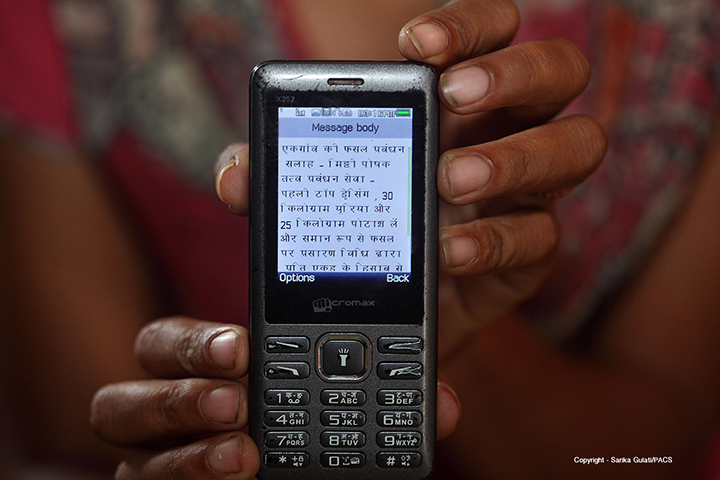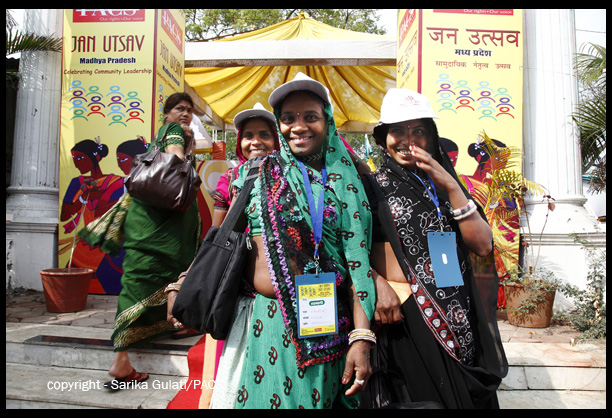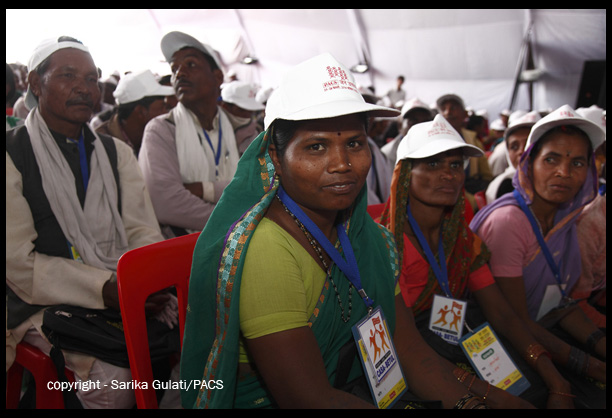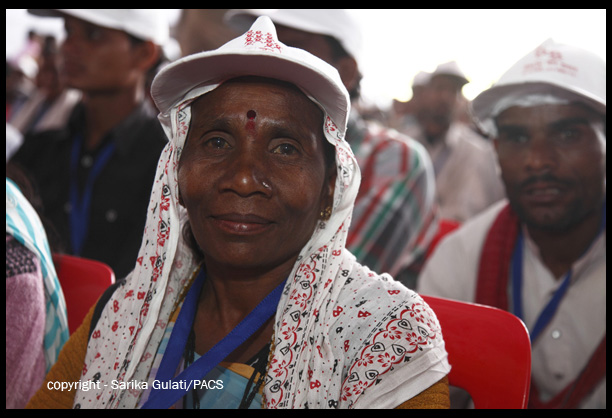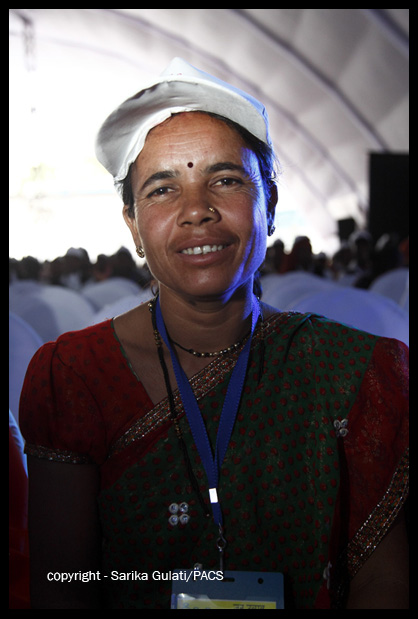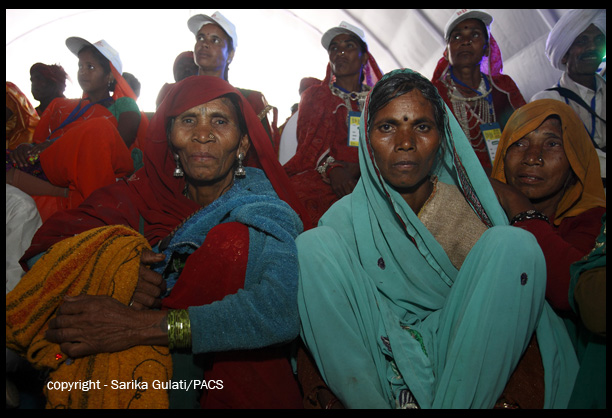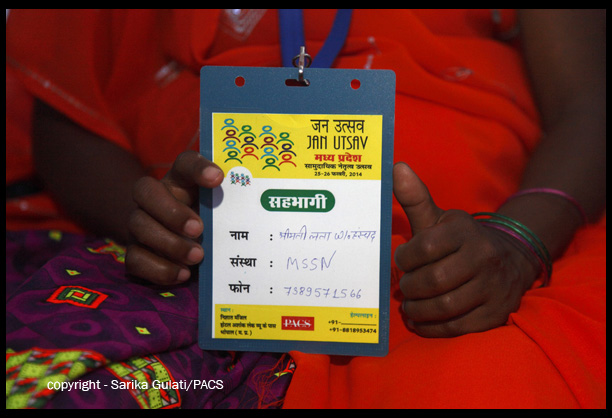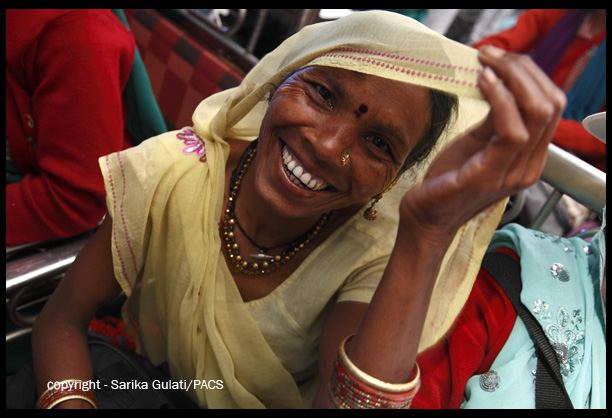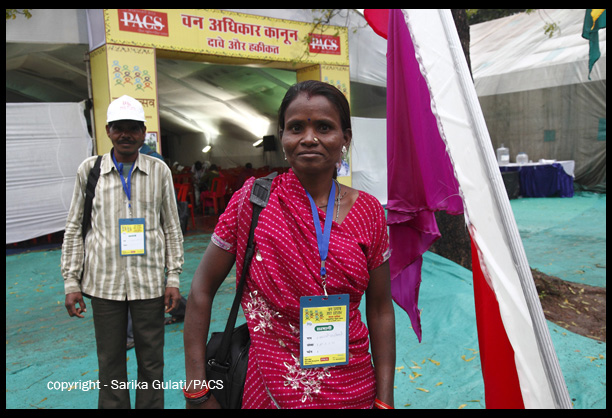Dec 17, 2013
1.30 p m
 Kanti Dubey and other members in MSSN office, Sagar, Madhya Pradesh.
Kanti Dubey and other members in MSSN office, Sagar, Madhya Pradesh.
Copyright – Sarika Gulati/PACS
It takes time, a long time to unlearn the beliefs that one inherits from childhood. And if that belief conflicts with the ideology of the organization then change in the outside world is not possible. One needs to change and believe in it, to bring change, to see that change . . .
Today is my second day and I am in Sagar District of Madhya Pradesh. Mahila Shram Sewa Nyas (MSSN, that is affiliated with SEWA) shared their work in the morning meeting and we headed off to Berkhedi Suvansh village in Sagar Block with Kanti Dubey, PACS Training coordinator, Sangeeta Chaurasia, PACS field organizer and Rampyari Soni, SEWA Bundelkhand coordinator.
Kanti Dubey is a Brahmin and belongs to a traditional family who have followed the norms of caste system since ages. To discriminate people on the basis of caste is not her fault. She has seen in her family and it’s ingrained in her since she was a child. Kanti holds a degree In Masters, Hindi Literature and got married in a Brahmin family.
Kanti always wanted to work in the social sector. When she got associated with SEWA, she would go to the villages but it was difficult for her to sit with the community. Recollecting her early days, she shared her experience with us.
“I am a Brahmin Pandit and it was a problem for me to work with Harijan communities. Initially, I was reluctant to sit with them but could not say anything. In our family, Harijans do not come at home. I was hesitant in drinking water and eating if something was offered. I could see my fellow workers talking to the community with ease but I had so many barriers in my mind. There was a constant conflict within me.
Since I was passionate about working at the grass root level, slowly I decided to change myself. I realized what I learnt at a young age was not right. The rigidity slowly disappeared and gave way to a more empathetic viewpoint. The communities respected me and I was overwhelmed with their response.
I saw poverty, exploitation, discrimination, and all kind of problems . . . i have never seen or thought it existed. I was adamant not to leave work and continued with it.”
Kanti shared her dilemma with her husband and he supported her. It was difficult for her to make the other family members understand. As it is, she was the only daughter-in-law in the joint family working outside.
Today, 14 years later, Kanti Dubey feels that she has 1000 extended families and share their joys and sorrows. Her mother-in-law too has changed over the years. The change is now reflected in her complete family.
Sometimes, meetings are held at her home and all the community members also participate. “My mother-in-law now offers water to the community members at home and acts as a host”, says Kanti Dubey.
There was no doubt; Kanti’s beaming face said it all . . .
Please do share if you have any such experiences.
For those who are not aware, the Poorest Areas Civil Society (PACS) (www.pacsindia.org) programme is one of the largest programmes in India with a focus on socially excluded communities. PACS has provided a platform for media practitioners to create a social media caravan to highlight struggles and success of communities fighting discrimination and gain access to entitlements.
(PACS Diary-Day 2)
